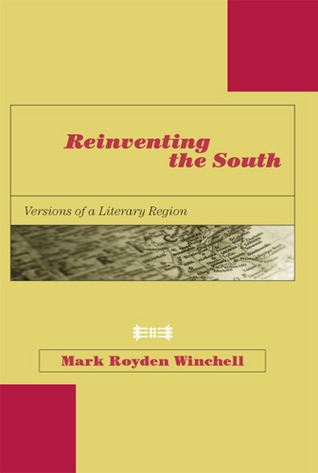George Garrett, Chronicles’ most distinguished contributing editor, can be relied upon, always, to tell it like it is. He is doing just that when he writes in a blurb to Reinventing the South: “[T]hese essays are splendidly written—mercifully free of contemporary critical jargon and easily accessible to the good and serious reader.” And he amplifies this description of Professor Winchell’s work with a reference to “high intelligence joining wit, good humor, and common sense.”
Though not in Garrett’s class as a critic (or anything else), I had the same reaction. Winchell compliments two of his mentors in Southern literature, Walter Sullivan and Monroe K. Spears, when he judges them to be not just academics but genuine men of letters. These essays justify awarding the same honorable title to Winchell himself.
Professor Winchell, biographer of Donald Davidson and Cleanth Brooks, devotes a lot of attention to the Agrarians and their disciples. He has interesting new things to say about Robert Penn Warren, and his “Arkansas Traveler” is the best treatment I have seen of that difficult subject, John Gould Fletcher. Other essays take up William Faulkner, Tennessee Williams, William Humphrey, and Cormac McCarthy. But these are more than literary discussions. Winchell’s merit lies especially in his ability to relate these writers, their works, and the reception of those works to the larger theme of the South, its role and its images in the American story. For instance, he understands the relevance of the Agrarians to the ongoing attempts to suppress and slander the Confederate flag. The flag’s enemies, as he felicitously puts it, regard it as “the symbol of a terrorist group who tried to overthrow the U.S. government.”
That is only one sample of Winchell’s many happy turns of phrase. Another is his statement about McCarthy: “[H]e has the courage of his perversions.” The essay on McCarthy was written before that writer’s No Country for Old Men was available. Before I read that book, I would have agreed with Winchell about McCarthy’s irredeemable nihilism. But as Chilton Williamson wrote in these pages, No Country for Old Men does seem to show a glimmer of humanity and has changed my opinion. Perhaps it will change Winchell’s, too.
[Reinventing the South: Versions of a Literary Region, by Mark Royden Winchell (Columbia, MO: University of Missouri Press) 253 pp., $39.95]

Leave a Reply